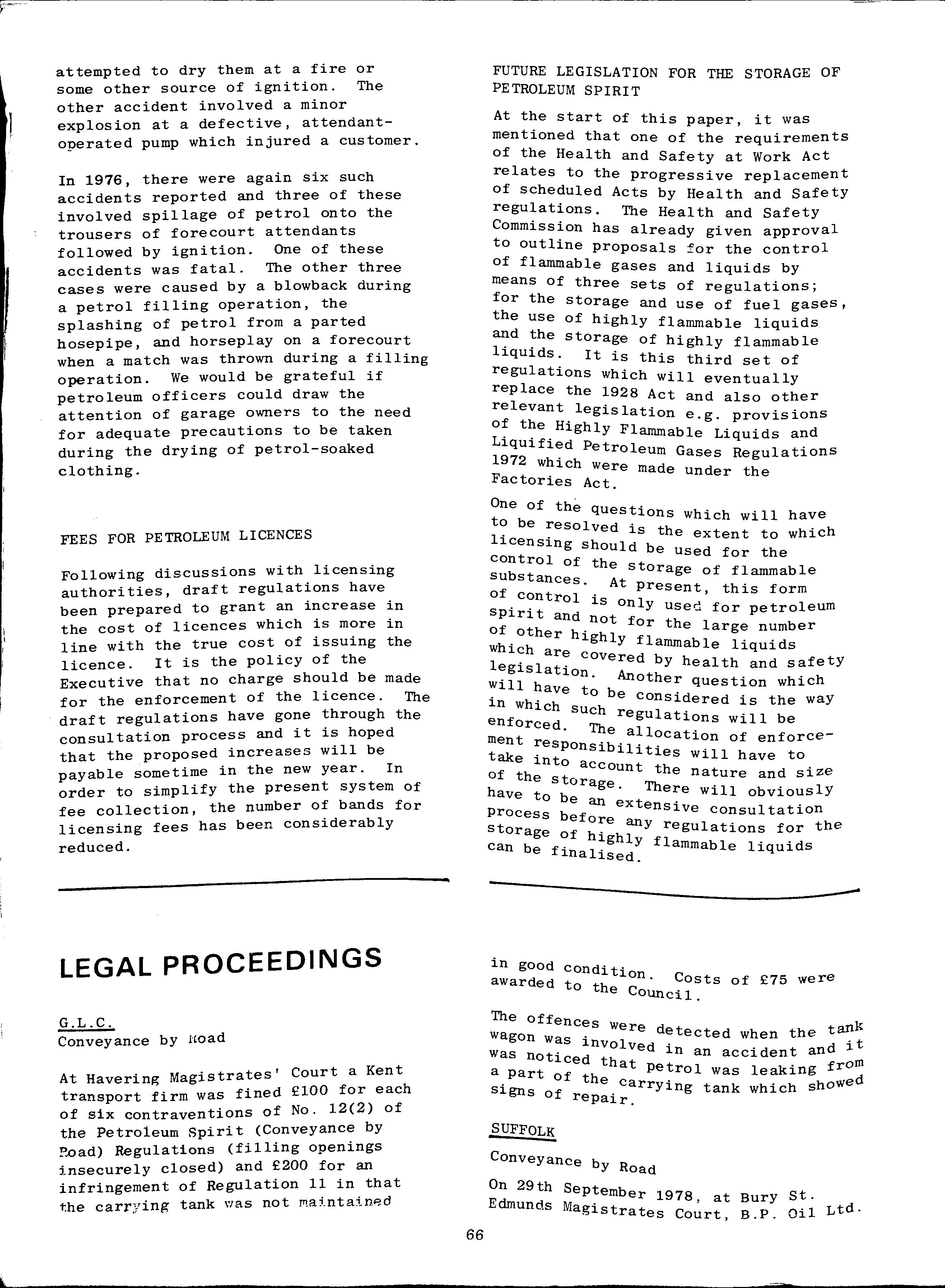
3 minute read
Legal Notes
By E. Furniss ASSistant County Consumer Protection Officer, Kent County Council.
Criminal Law Act 1977
Advertisement
As from 17th July 1978 a further set of the provisions of the Criminal Law Act 1977 have been in force. They were brought into effect by the Criminal Law Act 1977 (Commencement No. 5) Order 1978 which was made on 16th May 1978. The following matters may affect petroleum and explosive officers.
Petroleum (Consolidation) Act 1928
By virtue of Section 31 (5) and (6) of the Criminal Law Act 1977 certain increases in penalty are specified in respect of enactments which were made before 1949. In cases where the penalties have remained unchanged since the end of 1948 new penalties are given. Section 17 (5) of the Petroleum (Consolidation) Act 1928 falls into this category and the penalty is increased to £50. The section deals with obstruction and failure to give samples of petroleuffi.
Explosives Act 1875
Section 28 (2) of the Criminal Law Act 1977 effectively increases the penalties in respect of certain offences which are "triable either way" i.e. either on indictment or summarily. Sections 30 and 32 of the Explosives Act are triable either way by virtue of Section 91 of that Act. The penalty is therefore increased for each offence to £1,000 from the £2 previously operative. Section 30 deals with the hawking, selling or exposing for sale of explosives in a highway, street or public place, whilst Section 32 creates the offence of failing to keep explosives in a substantial, properly labelled receptacle when sold or exposed for sale.
Health and Safety at Work etc. Act 1974
Section 33 (5) of this Act is specificruly affected by Section 15 and 30 of the Criminal Law Act. Section 30 increased the penalties for a continuing contravention of an improvement notice, a prohibition notice or a court order. The previous £50 per day has now become £101 day By Section 15, these continuing offences may now be tried only summarily, instead of being triable either summarily or on indictment.
The penalty specified in Section 33 (3) of the Health and Safety at Work etc. Act 1974 has been increased under the general provisions of Section 28 (2). For a summary conviction this now becomes £1,000 (for offences committed after 17.7.78). Even this new penalty of £1,000 may be increased further (to take into account the changes in money values) by an order under Section 61 (1) of the Criminal Law Act 1977.
A minor amendment is made to Section 15 (6) (d) of the Health and Safety at Work etc. Act 1974 by Schedule 12 of the Criminal Law Act. Section 15 (6) (d) now reads "may restrict the punishments (other than the maximum fine on conviction of indictment) which can be imposed in respect of any Such offence as is mentioned in paragraph (c) above".
A major change is made in the procedure to determine how offences which are triable either way (which most and explosives offences caught by Section 33 (3) of the Health and Safety Act are) should be heard. Previously it was a matter on which the prosecution could elect. Now by virtue of Section 20 of the Criminal Law Act 1977 first the prosecution and then the accused to make must be given the opportunit t " y representa lons as to the mode of trial. The court must then deCide having to the following cri teria:-
(1) the nature of the case (2) whether the offence is of a serious charater (3) whether the punishment which the magistrates could inflict WOuld be adequate (4) any other Circumstances.
If the court decides on a summary trial as being more suitable the accUsed may consent to being so tried, or he may still opt for trial by jury. (Section 21) .










